Abstract
We evaluated a process of descriptive assessment, functional assessment, and assessment-based intervention with an elementary-school child who was described as having emotional and behavioral challenges, but who also exhibited above-average intelligence and communication skills. During a hypothesis-development phase, information was gathered from several sources including an interview that was conducted directly with the participant. Descriptive information collected during this phase produced five hypotheses about variables maintaining the problem behavior that were then tested experimentally in the classroom environment. The resulting functional assessment data supported the hypotheses. Intervention packages based on the hypotheses were implemented sequentially across English, spelling, and math classes. The interventions were successful in increasing on-task behavior, and the improvements were maintained for the remainder of the school year.
Full text
PDF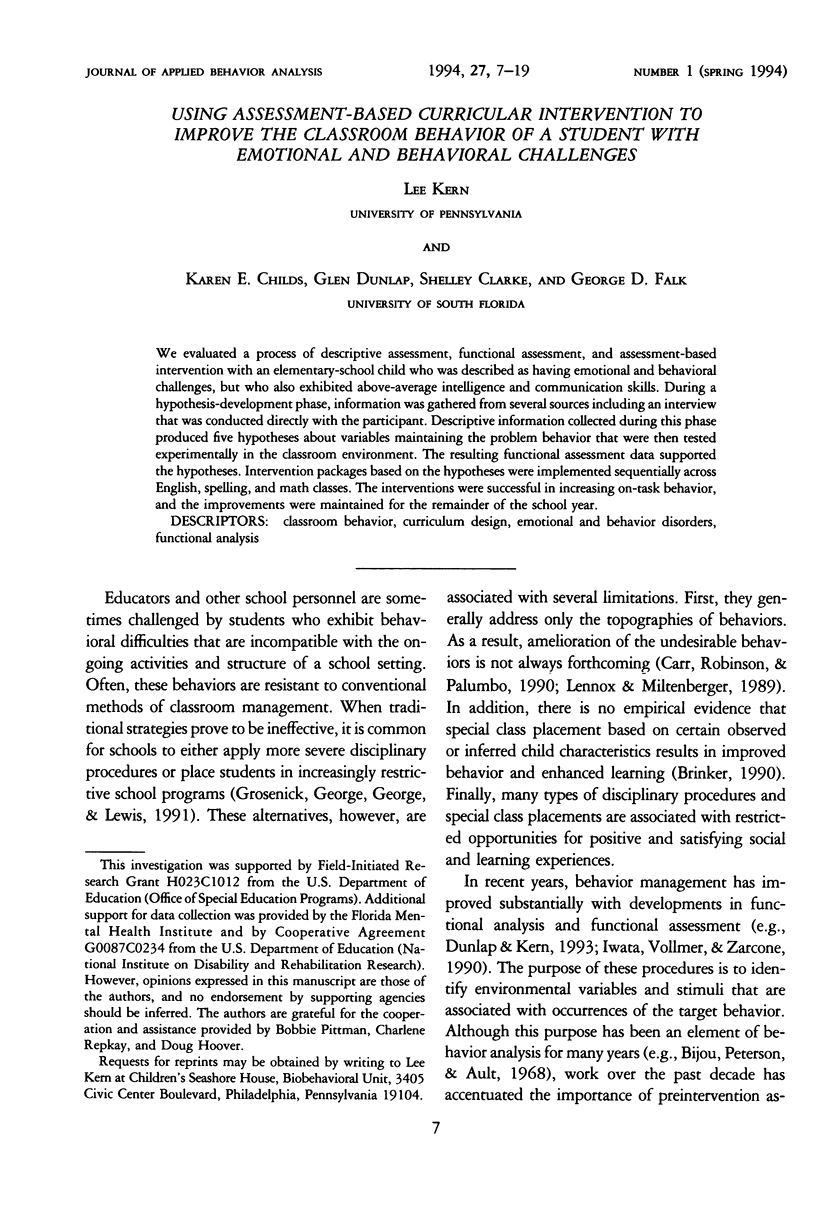
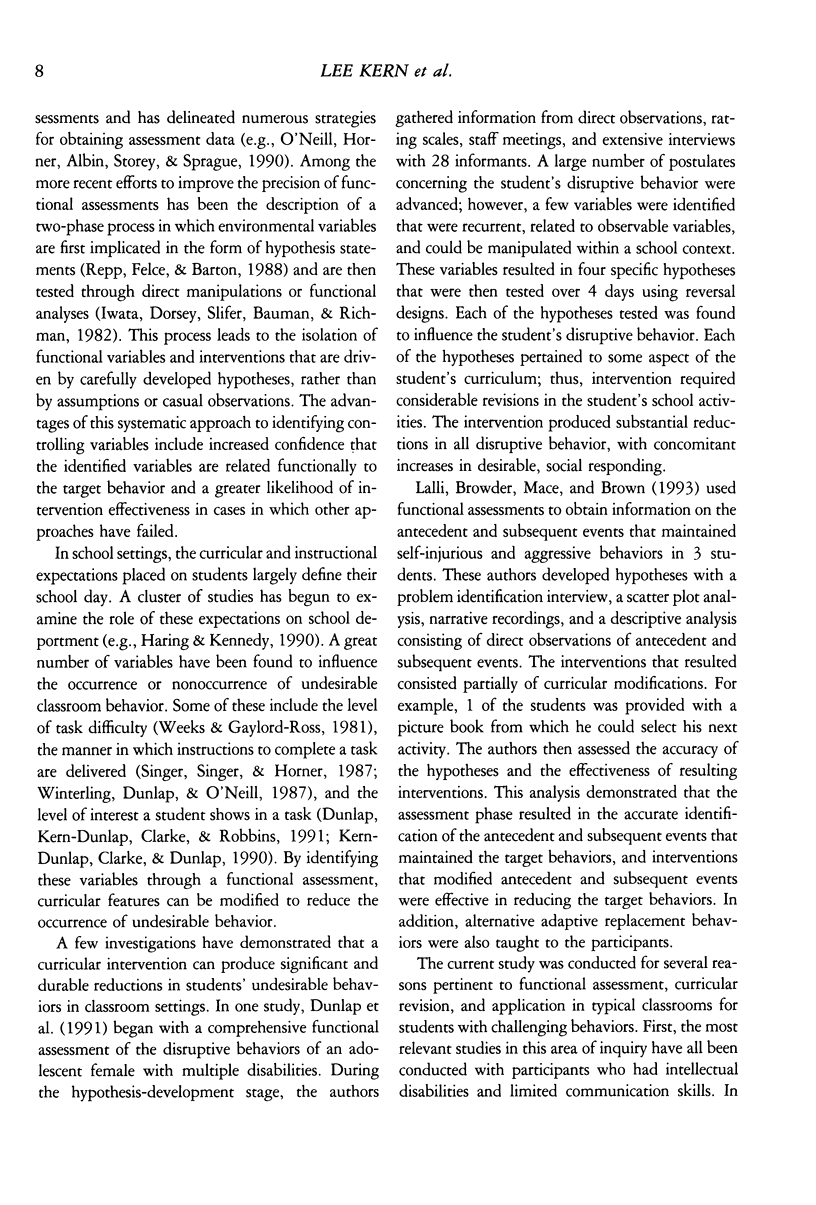
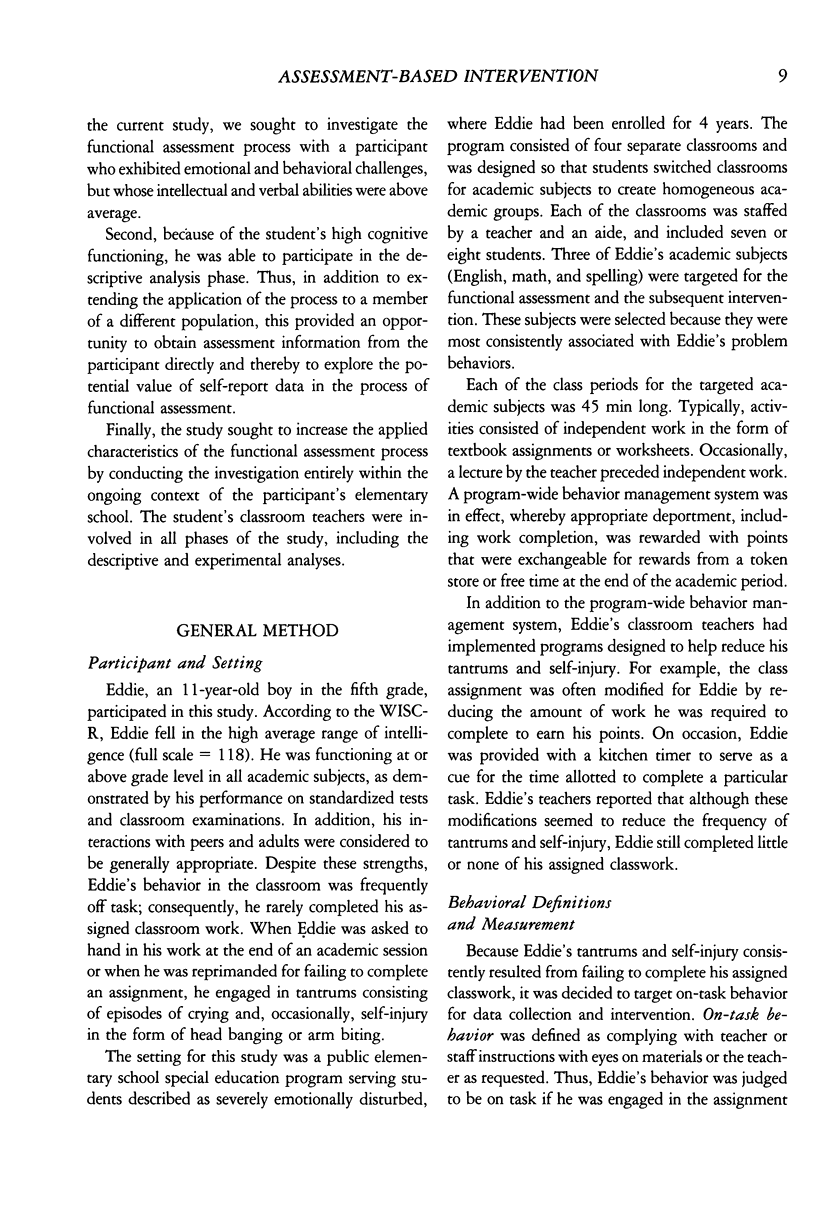
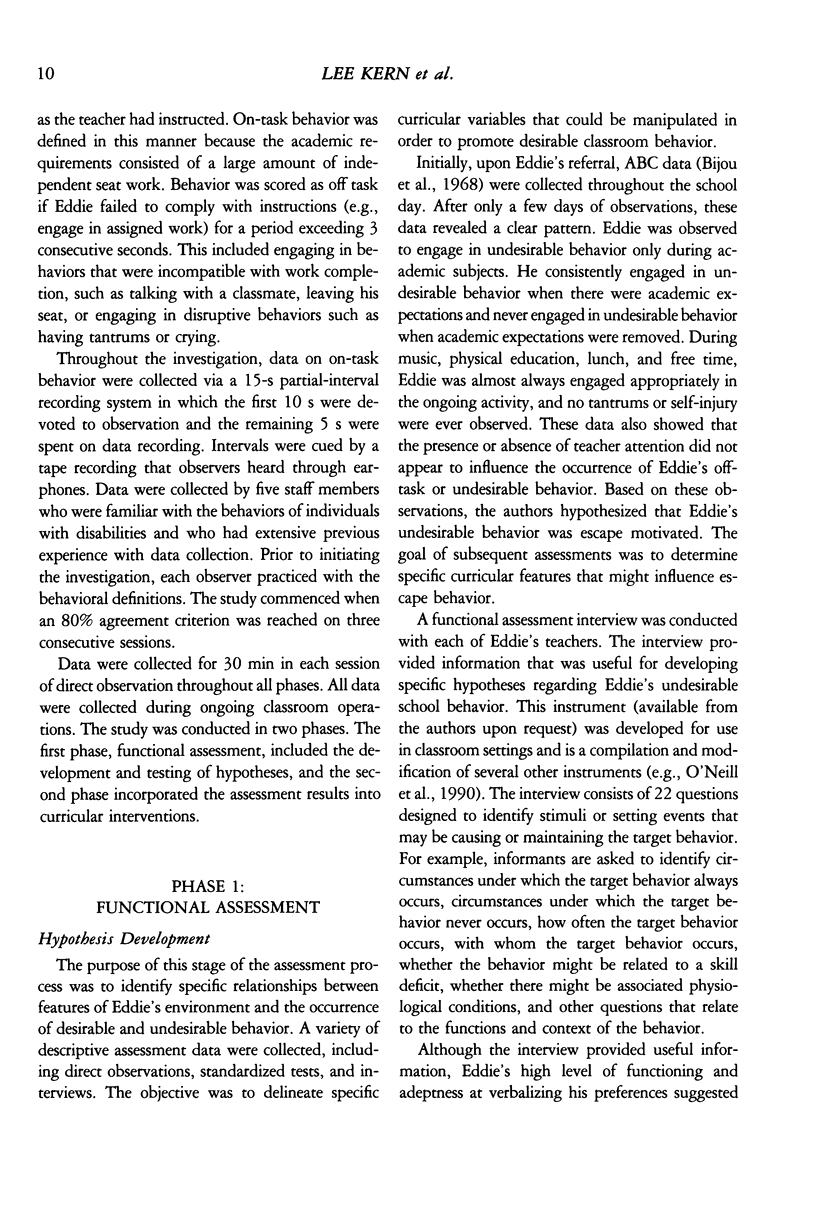
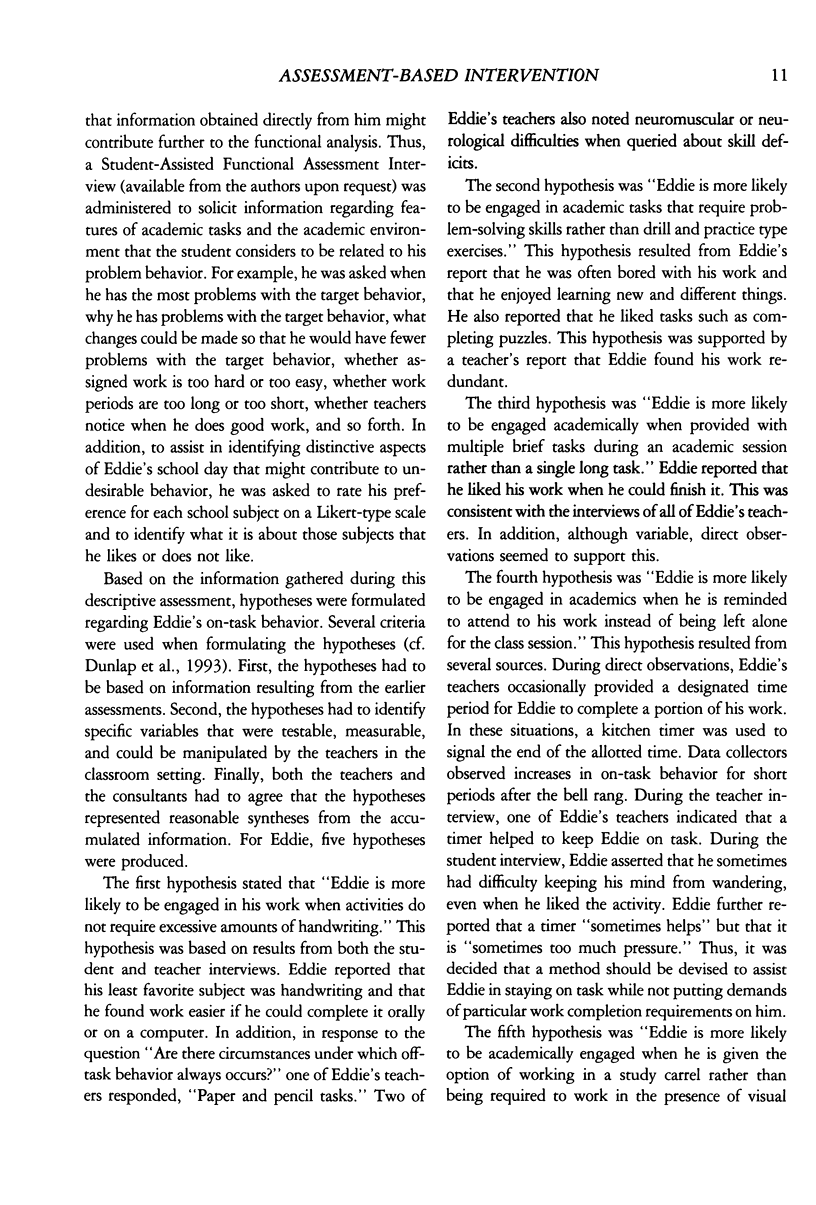
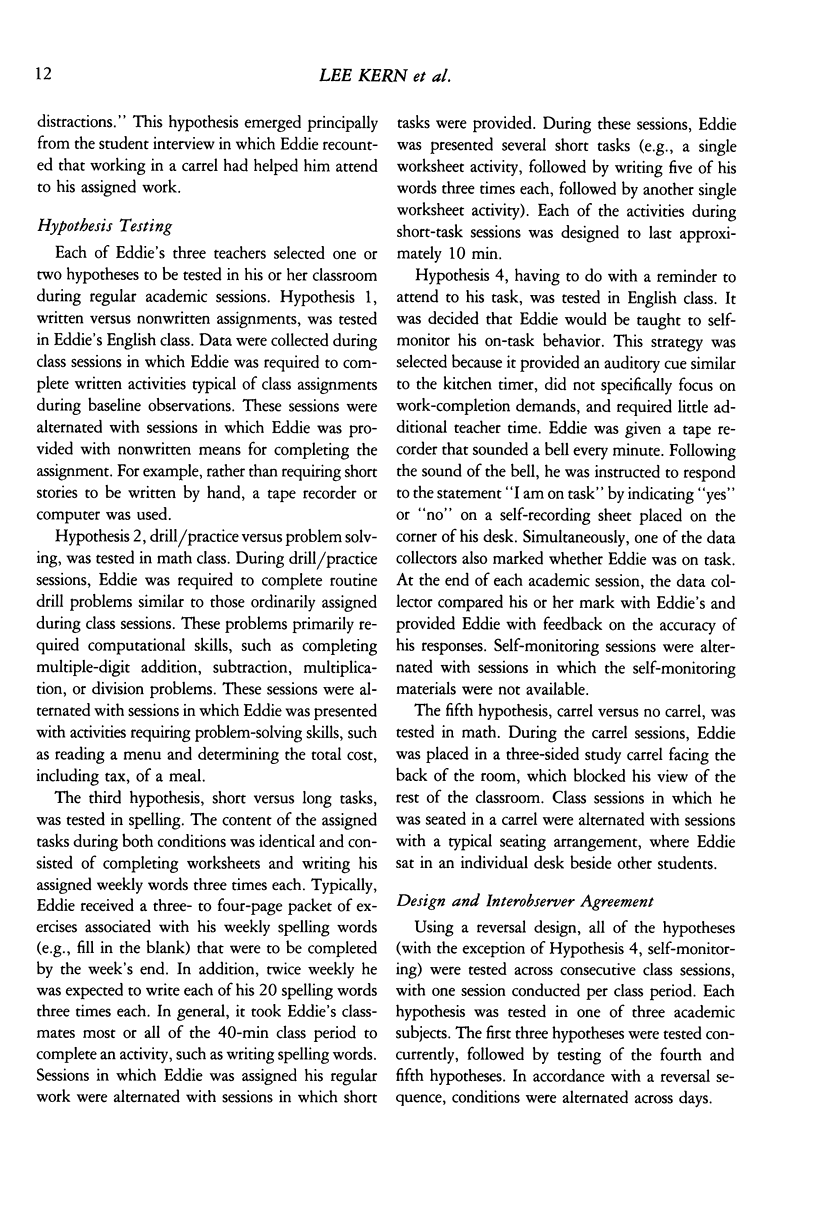
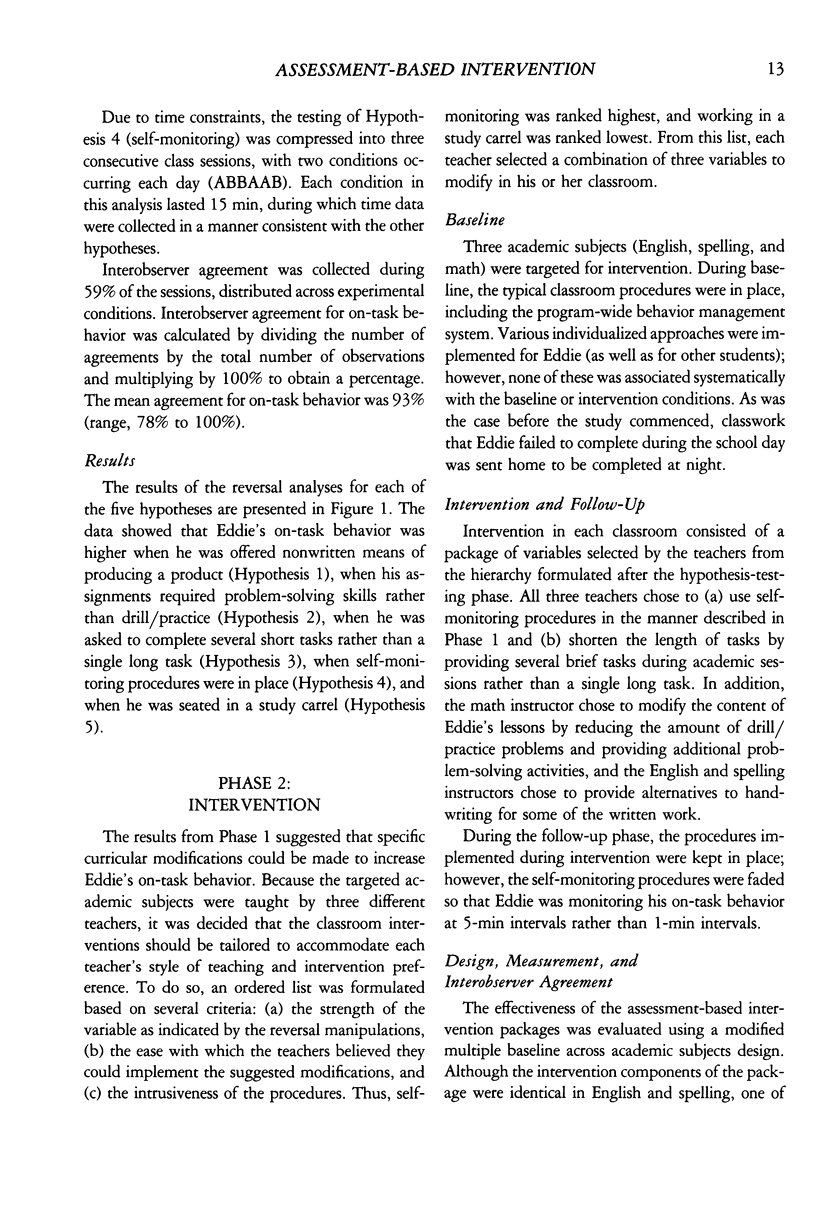
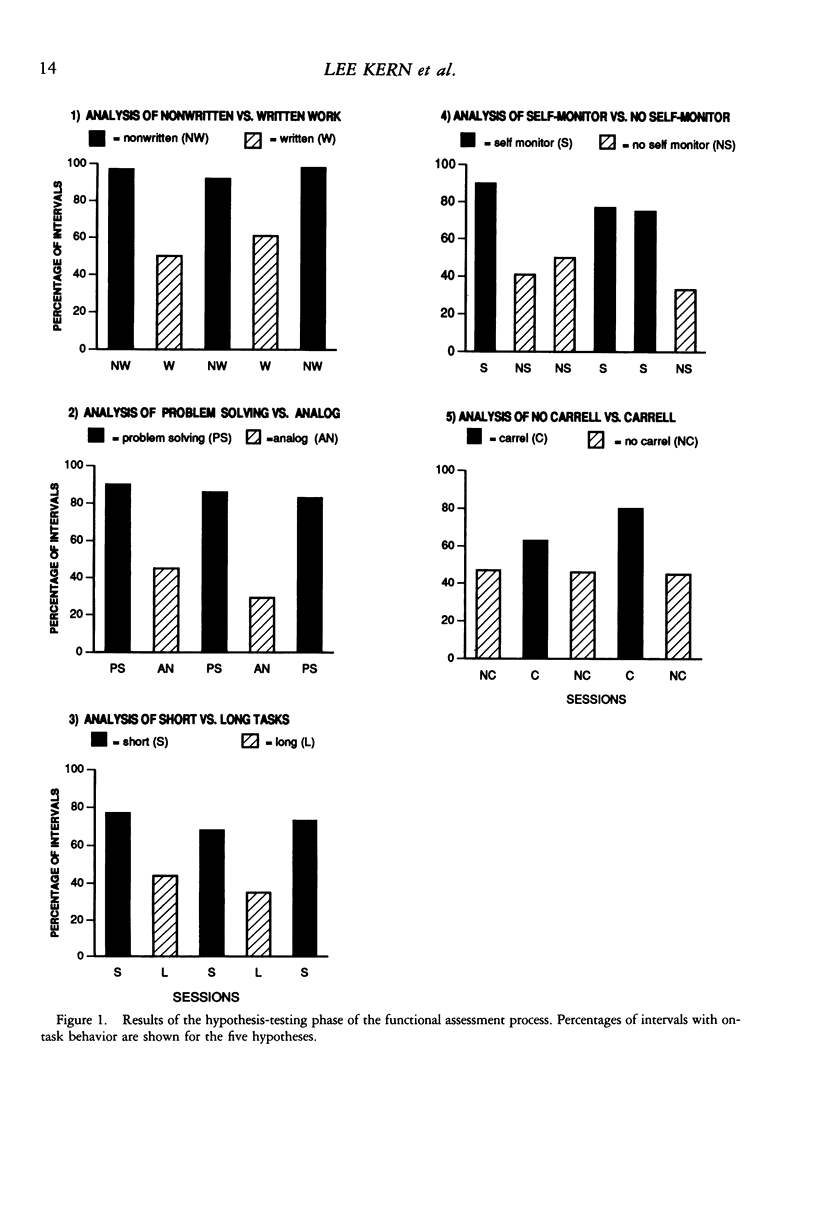
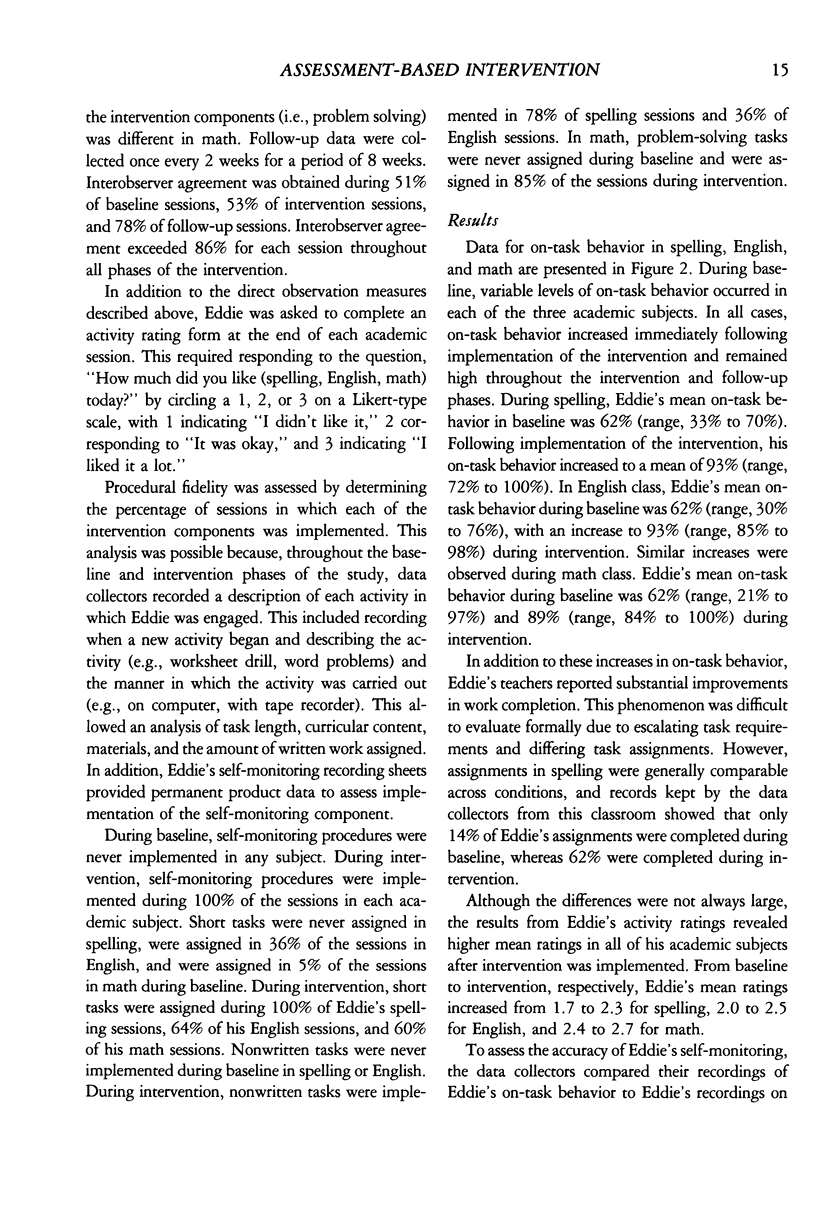
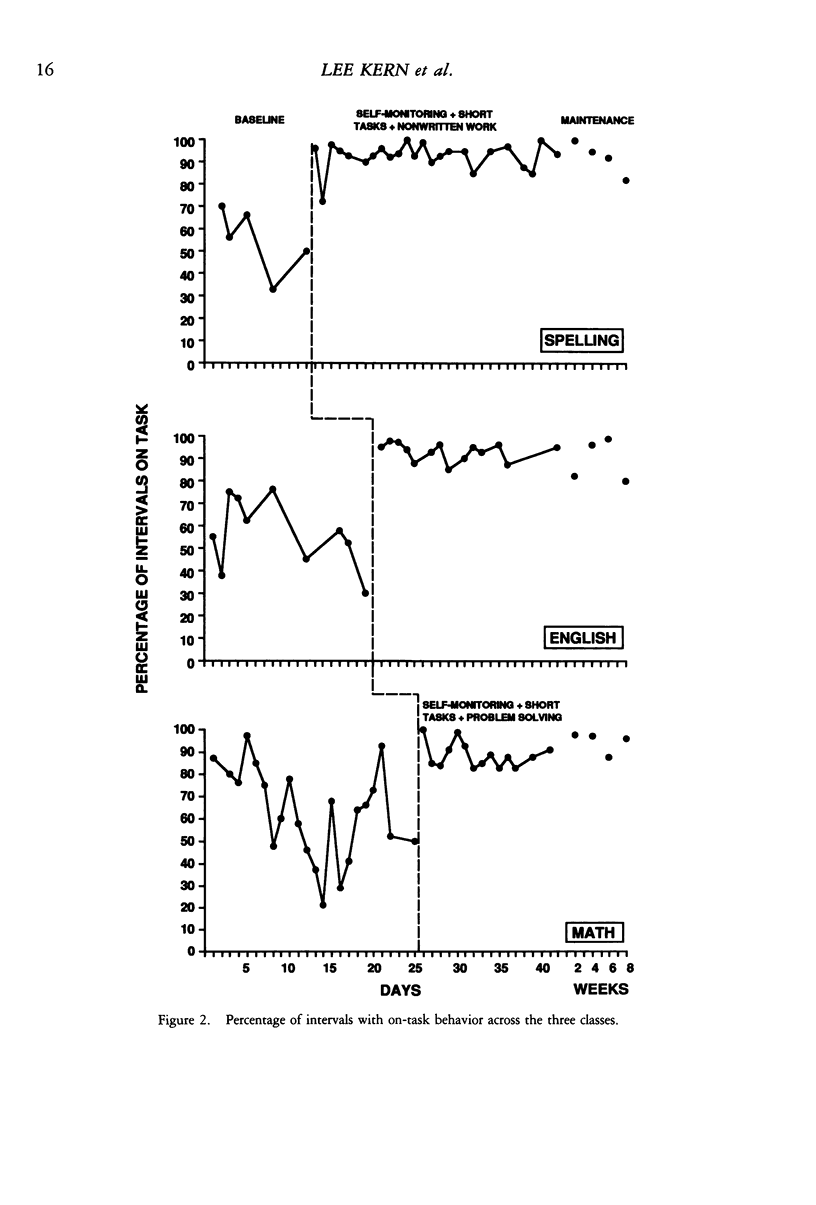
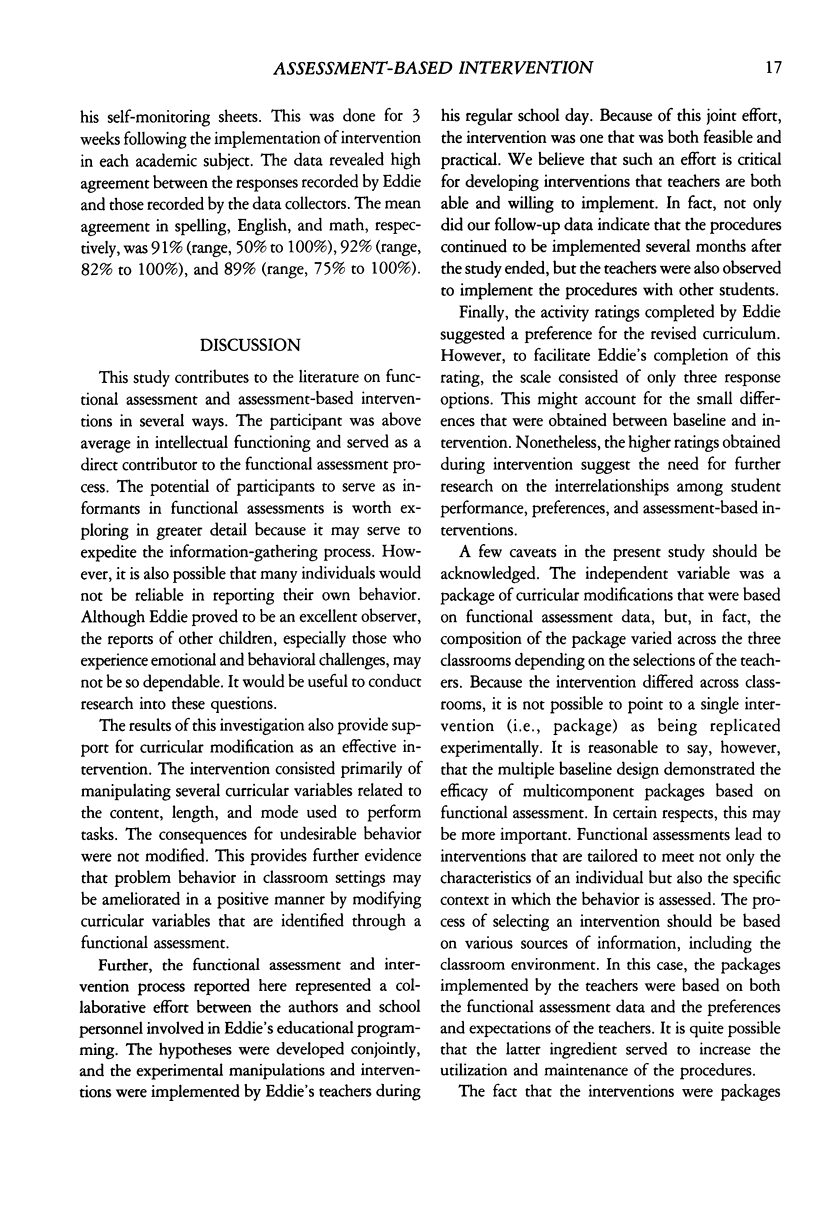
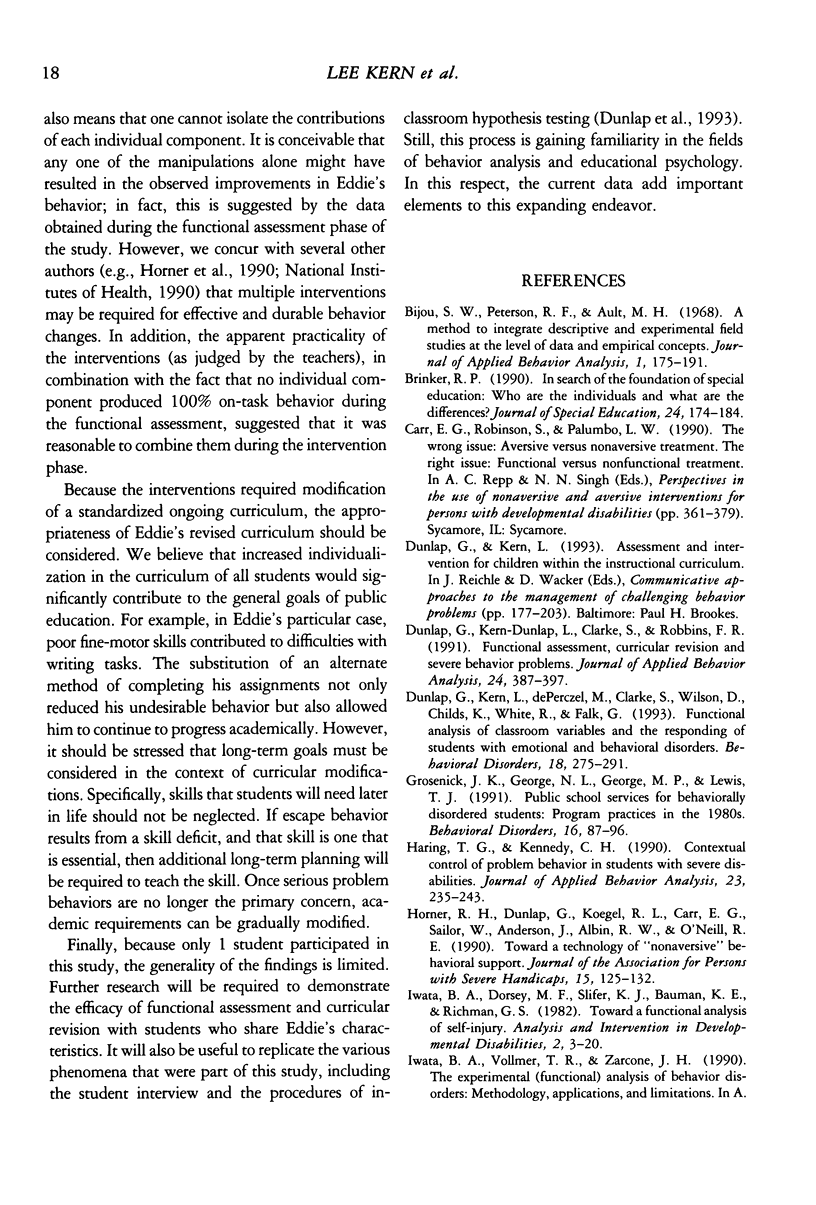
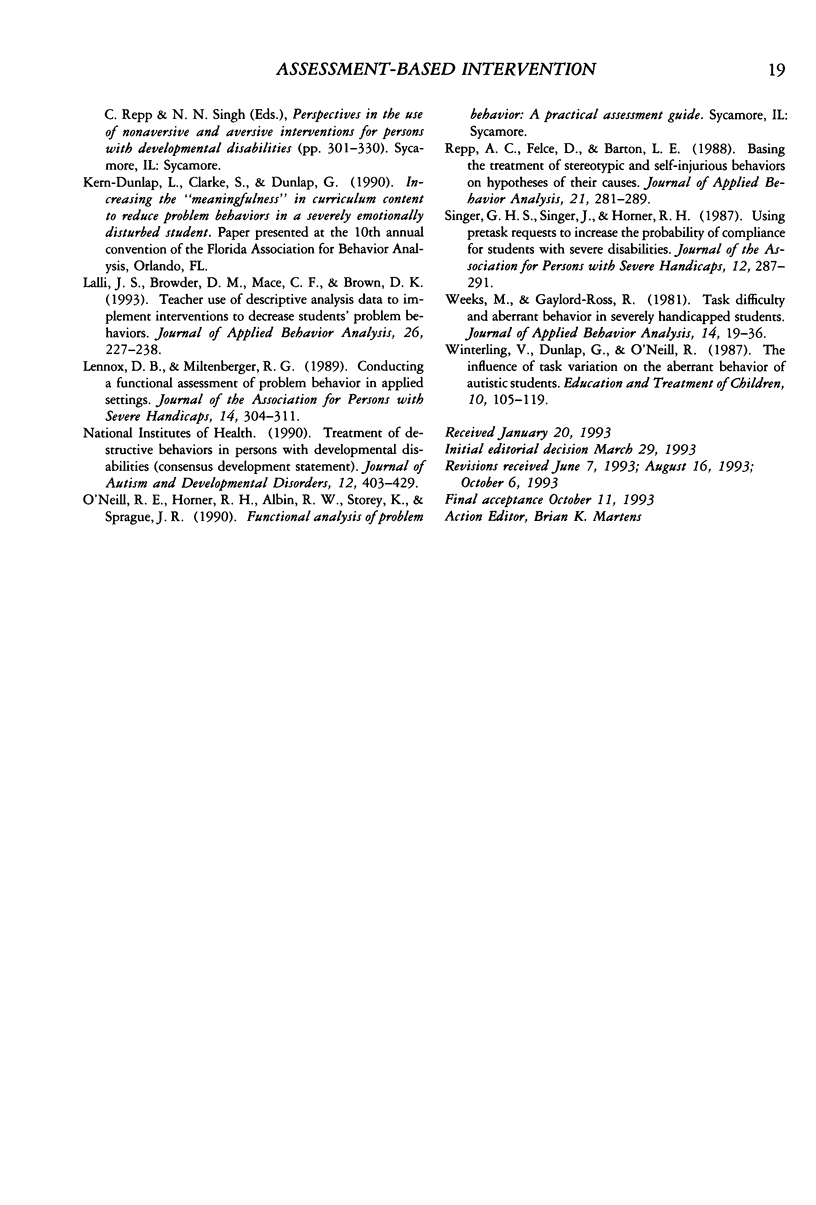
Selected References
These references are in PubMed. This may not be the complete list of references from this article.
- Bijou S. W., Peterson R. F., Ault M. H. A method to integrate descriptive and experimental field studies at the level of data and empirical concepts. J Appl Behav Anal. 1968 Summer;1(2):175–191. doi: 10.1901/jaba.1968.1-175. [DOI] [PMC free article] [PubMed] [Google Scholar]
- Dunlap G., Kern-Dunlap L., Clarke S., Robbins F. R. Functional assessment, curricular revision, and severe behavior problems. J Appl Behav Anal. 1991 Summer;24(2):387–397. doi: 10.1901/jaba.1991.24-387. [DOI] [PMC free article] [PubMed] [Google Scholar]
- Haring T. G., Kennedy C. H. Contextual control of problem behavior in students with severe disabilities. J Appl Behav Anal. 1990 Summer;23(2):235–243. doi: 10.1901/jaba.1990.23-235. [DOI] [PMC free article] [PubMed] [Google Scholar]
- Lalli J. S., Browder D. M., Mace F. C., Brown D. K. Teacher use of descriptive analysis data to implement interventions to decrease students' problem behaviors. J Appl Behav Anal. 1993 Summer;26(2):227–238. doi: 10.1901/jaba.1993.26-227. [DOI] [PMC free article] [PubMed] [Google Scholar]
- Repp A. C., Felce D., Barton L. E. Basing the treatment of stereotypic and self-injurious behaviors on hypotheses of their causes. J Appl Behav Anal. 1988 Fall;21(3):281–289. doi: 10.1901/jaba.1988.21-281. [DOI] [PMC free article] [PubMed] [Google Scholar]


